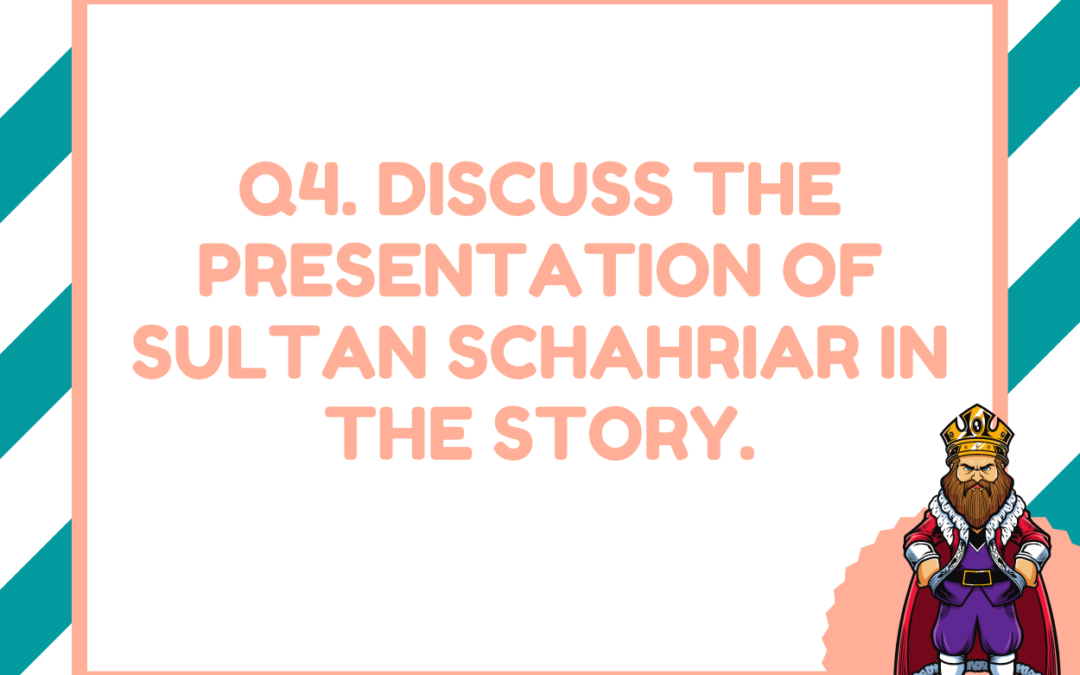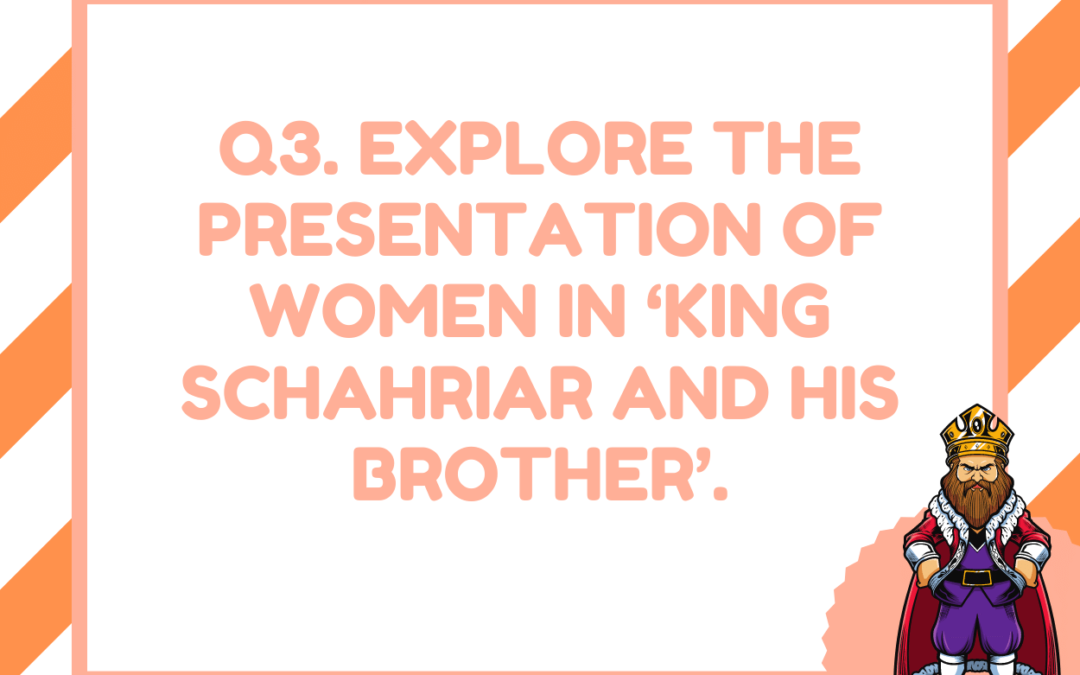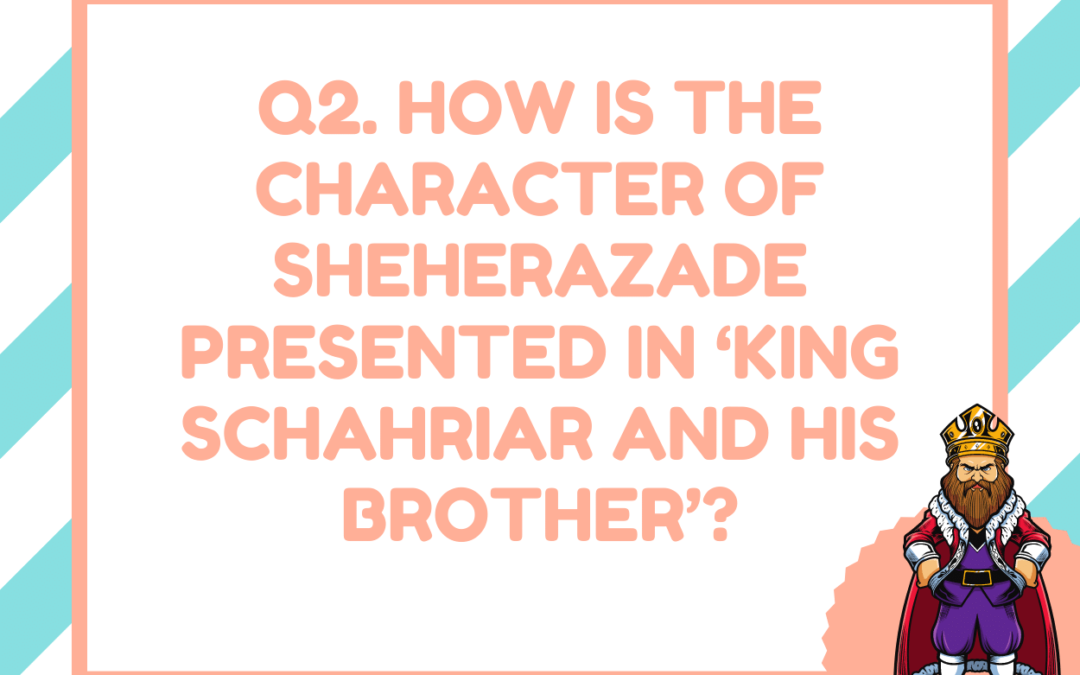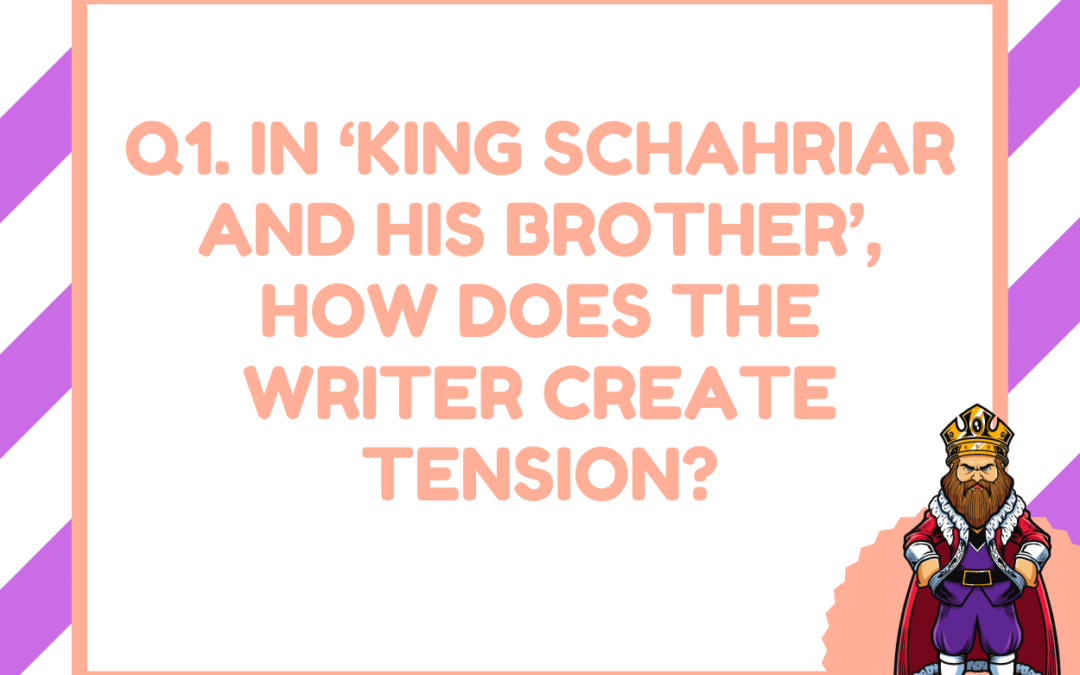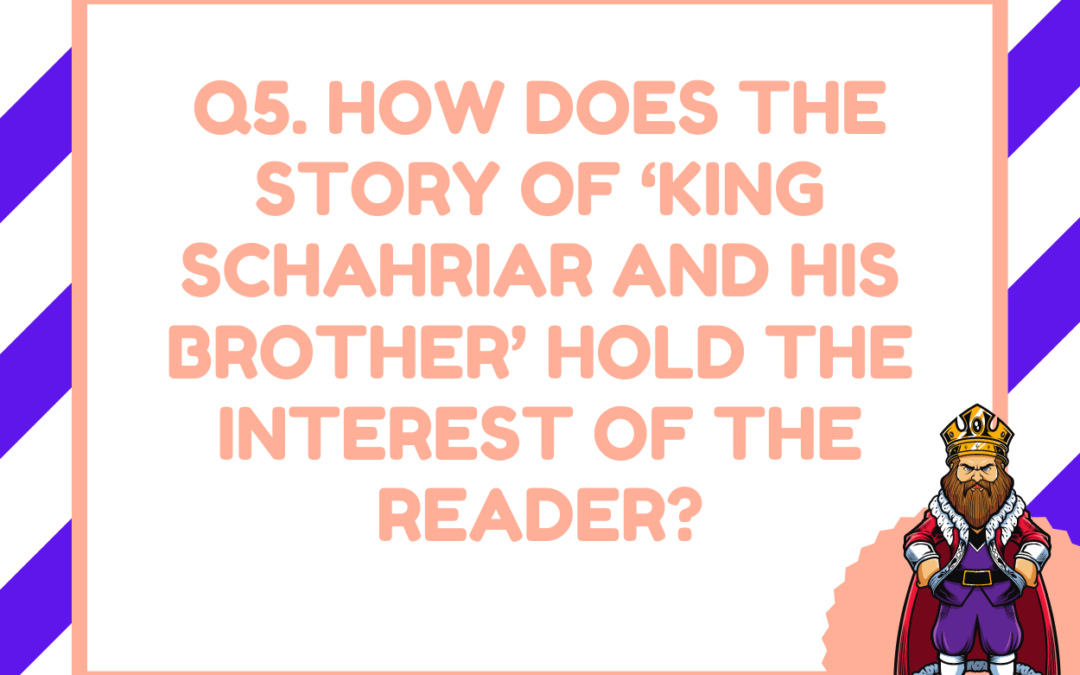
IGCSE King Schahriar Model Essays Question 05
Edexcel English IGCSE: King Schahriar and his brother
Q5. How does the story of ‘King Schahriar and his brother’ hold the interest of the reader?
In your answer, you should think about:
- the transformation of King Schahriar;
- the character of Sheherazade;
- the actions taken by Sheherazade;
- the writer’s use of language.
You should refer closely to the passage to support your answer. You may use brief quotations.
Edexcel English IGCSE Model Essay by an Expert
Because of the fascinating characters and terrible events of the story, this story successfully holds the interest of the reader. There is a build-up of tension throughout the plot.
The first pointsof interest in the story is the dramatic transformation of King Schahriar’s character. At first, he seems to be benevolent and generous, as reflected in the use of superlatives and hyperbole to describe his treatment of his wife: “loved more than all the world”, “finest dresses” and “most beautiful jewels”. However, the reader undergoes a complete change in perception when the king turns from kind to unimaginably cruel after learning of his wife’s deceitfulness. The reader’s sympathy shifts from the betrayed king to his innocent victims. The author creates this shift with emotive imagery to show the terrible effects on the townspeople. The sense of sound and sight are evoked in the images of the town, where “nothing was heard but cries and lamentations” and where parents are “weeping” and “trembling for the fate” of their children.
Scheherazade is also a very interesting character for the reader, since she challenges the expectations for women at the time. Because of the patriarchal society in which the story is set, we expect her to be meek and obedient. However, she is strong and determined, and stands up to authority. She is able to overcome the will of her father, despite his initial assertion that he would “never consent”. Her power over him is expressed almost in physical terms, as he was “yielding to her” and was consequently “bowed down with grief”. This creates an interesting incongruity between the powerlessness of the women in the society, who are killed daily, and Sheherazade’s strength. It piques the reader’s interest to see what she will do next.
Sheherazade’s brave actions create a great deal of tension in the story, which is exciting for the reader. She requests to be married to the king, which will surely result in her swift death. Her father understandably reacts with panic, expressed by his emotive language (“plunge a dagger in your heart”), exclamations, questions and alliteration (“still so obstinate”). Sheherazade’s contrasting composure creates tension because the reader cannot comprehend why she is so calm. Tension is built throughout her interactions with the king, because the reader is aware of how close she is to death. He follows her requests up to the end of the story, creating exciting releases of tension each time, but the story ends with unresolved tension, as the reader does not know if Sheherazade will be ultimately successful in her aim of stopping the king’s “barbarous practice”.
In its original context, this story needed to be exciting and interesting, because it is the introduction to a long collection of stories. This set-up makes the reader keen to read on, to find out what stories Sheherazade will tell the king, and whether they will change his ways.



